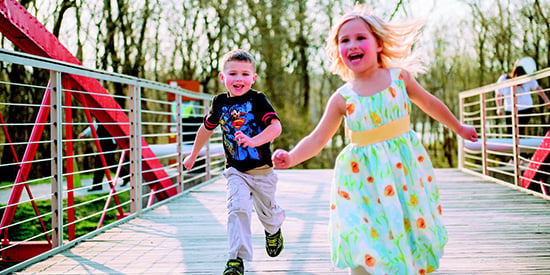New study examines ways to increase physical activity in children 0-5 years old
Media release
Deakin University researchers have undertaken a comprehensive analysis of current research and developed recommendations for preschool and childcare industry workers and policymakers aiming to increase physical activity in young children aged 0-5 years old.
Published recently in Obesity Reviews, the study is the first to examine both traditional systematic reviews and meta-analysis with 'realist' reviews, that help to show what is effective to help increase children's level of physical activity.
Dr Jill Hnatiuk from the Institute for Physical Activity and Nutrition at Deakin University, said that it provides crucial insights about effective early childhood physical activity strategies.
"We found that the most effective programs were those tailored to provide ongoing support to the early childhood educators as they deliver the program, as well as modifying materials to suit the parents and children involved to increase their participation. This might include considerations for cultural practices, or to suit the local community," Dr Hnatiuk said.
"In fact, tailoring should be a crucial component for researchers and practitioners to consider even before they develop or implement any physical activity initiative within any childcare setting.
"It is also important that structured physical activity sessions are designed in a way that can be easily incorporated into the daily routine of the childcare setting.
"Finding ways to help increase educators' knowledge, such as hands-on workshops where they can practice running physical activities for children, can be effective at increasing children's physical activity."
Dr Hnatiuk said that her team's review of the growing body of research in this area found that overall there was a small, but significant, positive effect for children's moderate or vigorous intensity physical activity (MVPA).
"This is critical as we know that many young children aren't active enough by the start of primary school. Early childhood is an important time to establish healthy behaviour patterns that, with the right support, will hopefully continue into middle childhood and even early adulthood," she said.
"We found that physical activity programs in childcare settings that focus on changing parent or educator practices is the most effective way to affect change in children's physical activity levels.
"It is also important to measure changes in the parents' or providers' behaviour, to help explain the impact of those behaviours on children's physical activity," she said.

